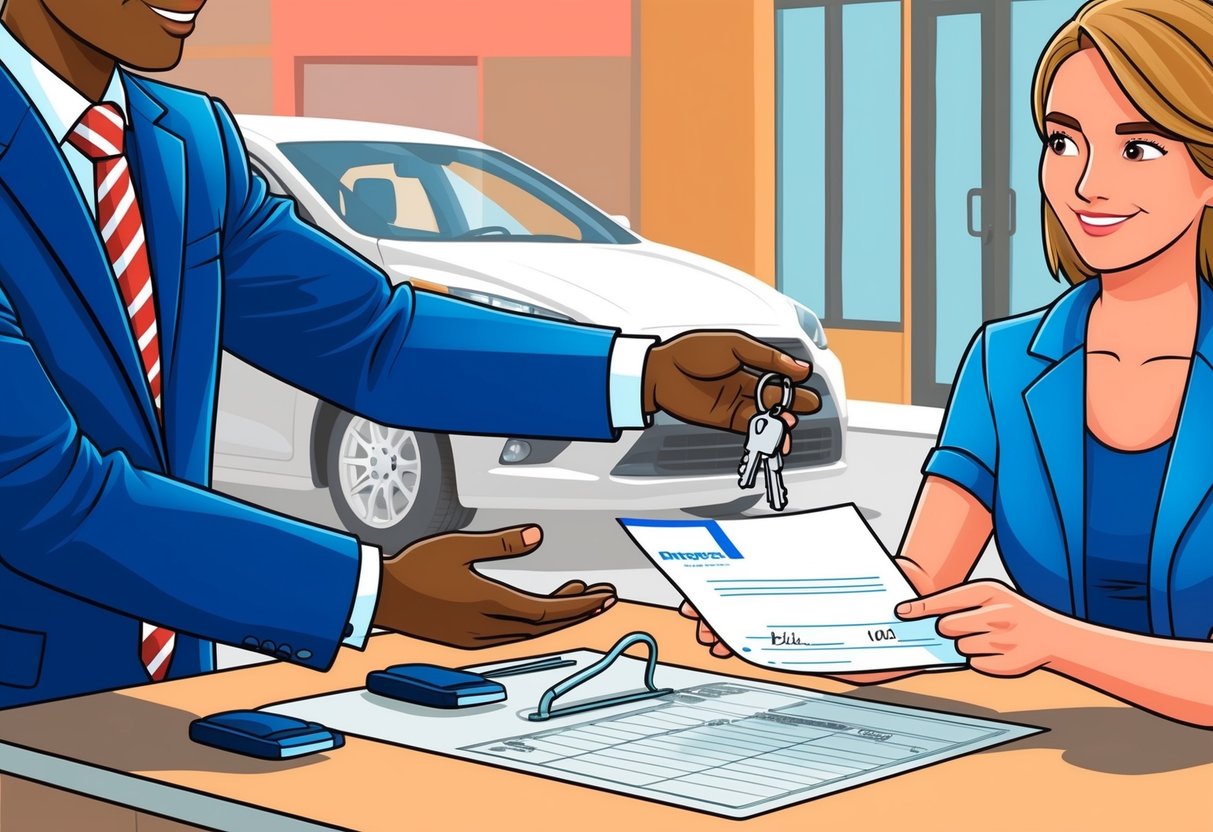
Purchasing from a Dealership Versus Private Seller

Registering a used car involves different processes depending on whether the vehicle was purchased from a dealership or a private seller. Buyers should consider the advantages and additional steps required for each scenario to ensure a smooth, legal transfer of vehicle ownership.
Dealership Registration Assistance
When purchasing a used car from a dealership, buyers often benefit from added support with registration procedures. Dealerships usually have experience handling the paperwork required by the state’s Department of Motor Vehicles (DMV) or equivalent agency.
Many dealerships will submit all necessary forms and fees on the buyer’s behalf, simplifying the process. In many states, dealerships can issue temporary license plates and provide proof of registration while permanent documents are processed.
This minimizes time without proper documentation. Dealerships are legally required to provide accurate title transfer and vehicle history, helping to prevent fraudulent sales.
Vehicles sold by reputable dealerships often come with a warranty or certification, offering more confidence in both the transaction and legal compliance. Dealers typically charge higher prices than private sellers, but their support can be valuable for buyers unfamiliar with state registration rules.
Steps for Private Party Purchases
For buyers choosing a used car from a private seller, handling registration becomes a personal responsibility. This process requires gathering essential documents, including the signed title, bill of sale, and valid identification.
Buyers must verify that the seller’s name matches the ownership record to avoid registration delays or problems. The buyer usually visits a local DMV office to submit paperwork, pay taxes and fees, and complete vehicle inspection requirements if needed.
It’s critical to carefully review the state’s requirements, as rules vary regarding emissions certification, smog checks, and proof of insurance. Unlike dealership transactions, private sales provide no intermediary to facilitate title transfer.
Double-checking documents and following state-specific procedures minimize the risk of missed paperwork or legal issues. Resources like detailed private sale guides can help clarify each step to ensure the used car is properly registered and legally owned.
Pre-Purchase Considerations and Vehicle Inspection
Evaluating a used vehicle before purchase reduces the risk of buying a car with hidden problems. Careful attention to test drives and third-party inspections ensures the buyer receives a vehicle in safe and reliable condition.
The Importance of a Test Drive
A test drive lets buyers experience how the car performs in real-world conditions. During the drive, they can assess acceleration, braking, steering response, and noise levels.
Unusual sounds, vibrations, or dashboard warning lights may indicate costly mechanical issues. It’s best to drive the vehicle on a variety of roads, including highways and city streets, to check for issues such as uneven tire wear, wandering alignment, and inconsistent transmission shifts.
Buyers should also test features like air conditioning, lights, and electronics to confirm full functionality. Checking comfort, visibility, and the overall driving experience helps ensure the vehicle matches individual needs.
Before or after the test drive, reviewing the vehicle history report can reveal past accidents, flood damage, or other important facts affecting value and safety.
Getting a Professional Inspection
A professional pre-purchase inspection offers an unbiased assessment of the car’s condition. Certified mechanics check components such as brakes, suspension, engine, exhaust, and frame.
Inspections reveal existing or potential problems that a basic walkaround might miss. Buyers should request a written inspection report, which details any faults or needed repairs.
Some provinces, such as British Columbia, provide specific pre-buy inspection services that help confirm the mechanical integrity of the vehicle. Having an inspection can also strengthen negotiating power, as documented defects may justify a lower price.
This step is especially important for vehicles with unclear maintenance histories, as it helps protect against unexpected costs after purchase.
Negotiating the Best Deal on a Used Car
Getting the best deal on a used car depends on knowing what the vehicle is worth and having a plan for every step of the negotiation. Buyers who research values and approach the process strategically often secure a lower selling price and more favorable terms.
How to Research a Fair Selling Price
The fair selling price for a used car can vary depending on the make, model, year, mileage, and condition. To determine what to pay, buyers should consult sources like Kelley Blue Book and Edmunds for pricing ranges based on local market data and recent transactions.
Comparing listings for similar vehicles within the area also helps highlight market trends and outliers. It is useful to look specifically at the features, accident history, and service records of the vehicle to adjust price expectations.
Several guides recommend coming prepared with a realistic price range, so it is easier to negotiate without being caught off guard. Understanding trade-in value and how it affects the overall deal lets buyers see the complete financial picture.
Effective Negotiation Strategies
Start negotiations by offering a price that is slightly below the researched market value, leaving room for the seller to make a counteroffer. Discuss only the price of the car at first, and address your trade-in or auto loan terms separately to avoid confusion.
Breaking negotiations into stages helps prevent being overwhelmed and allows clear focus on each point. It is important to be polite but firm, asking for specific reasons if the seller rejects the opening offer.
If financing is involved, shop around for the best interest rate before agreeing to on-site dealer terms. Following best practices for negotiating a used car purchase, such as sticking to your budget, being willing to walk away, and confirming every agreed change in writing, ensures a higher chance of getting a good deal on both the selling price and trade-in.